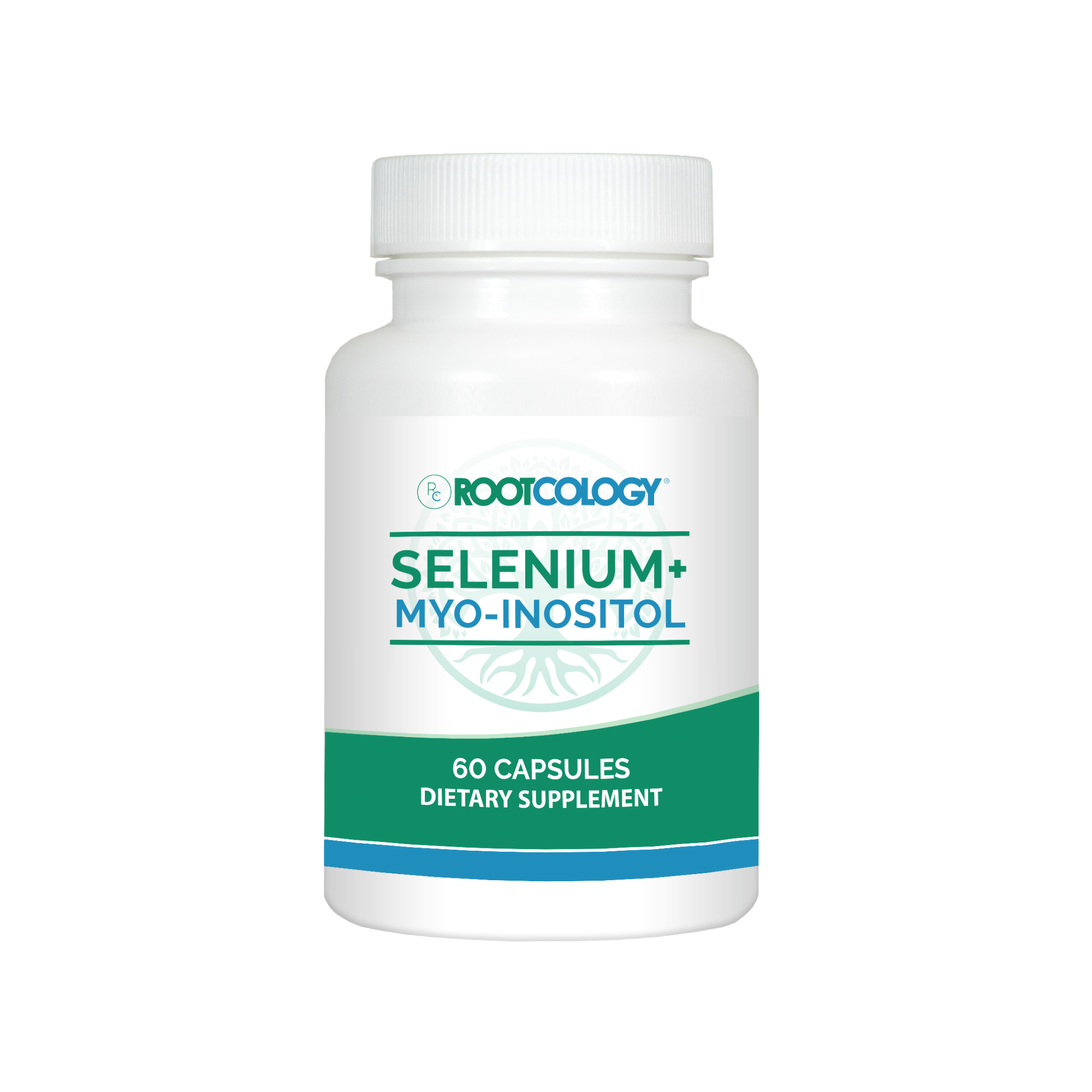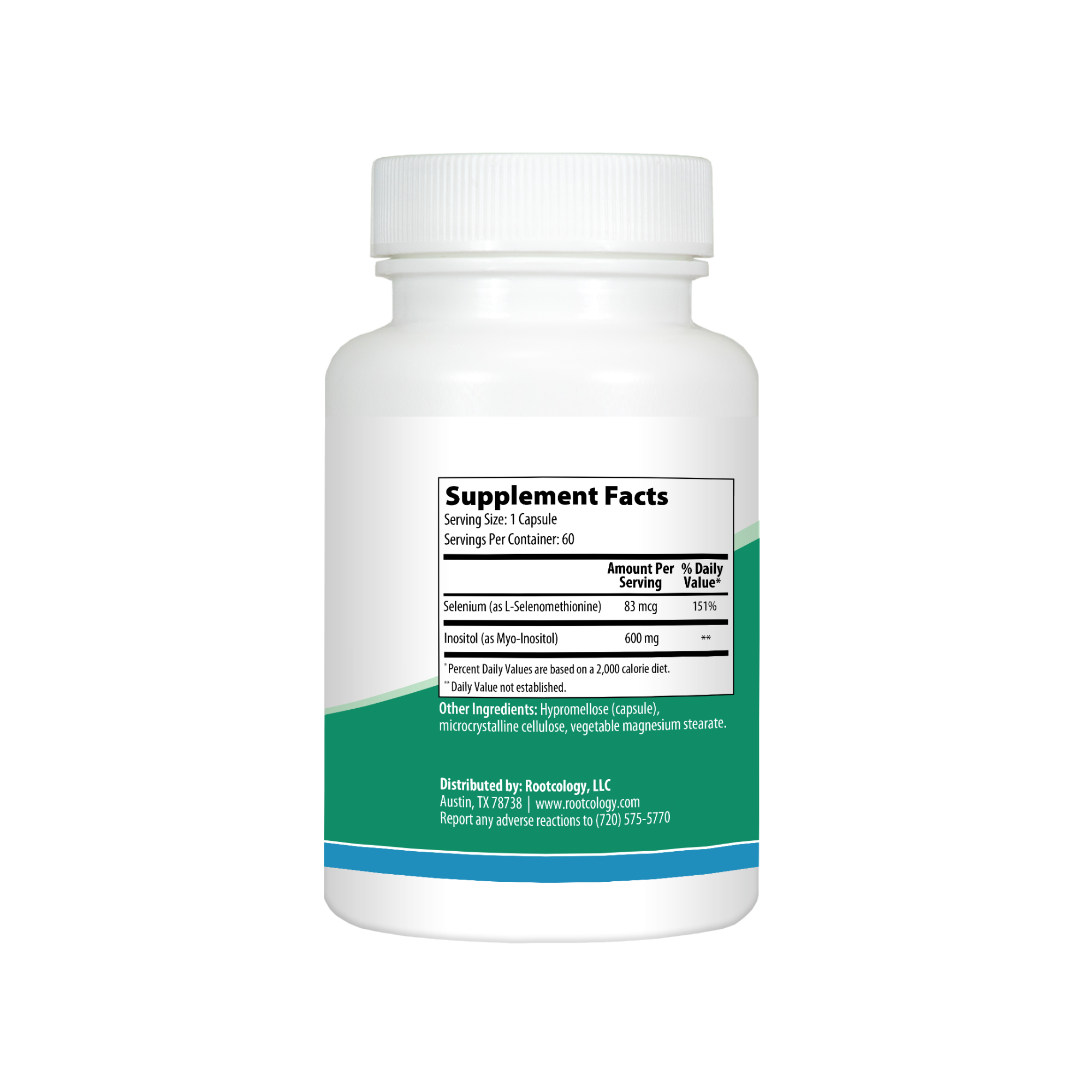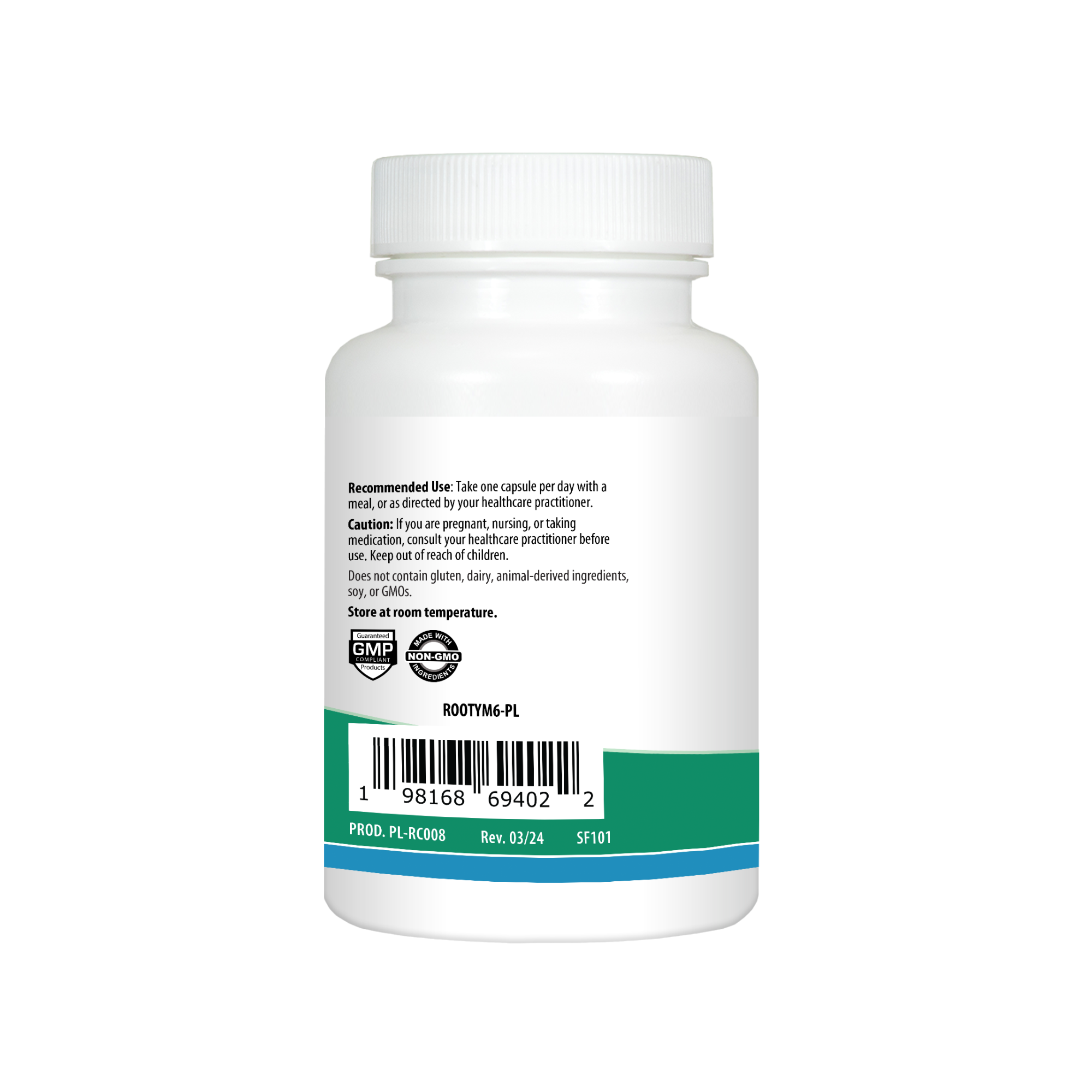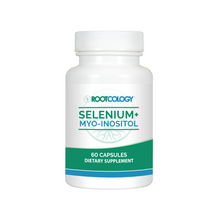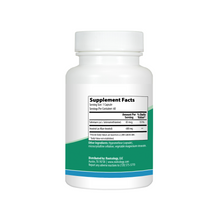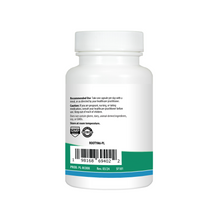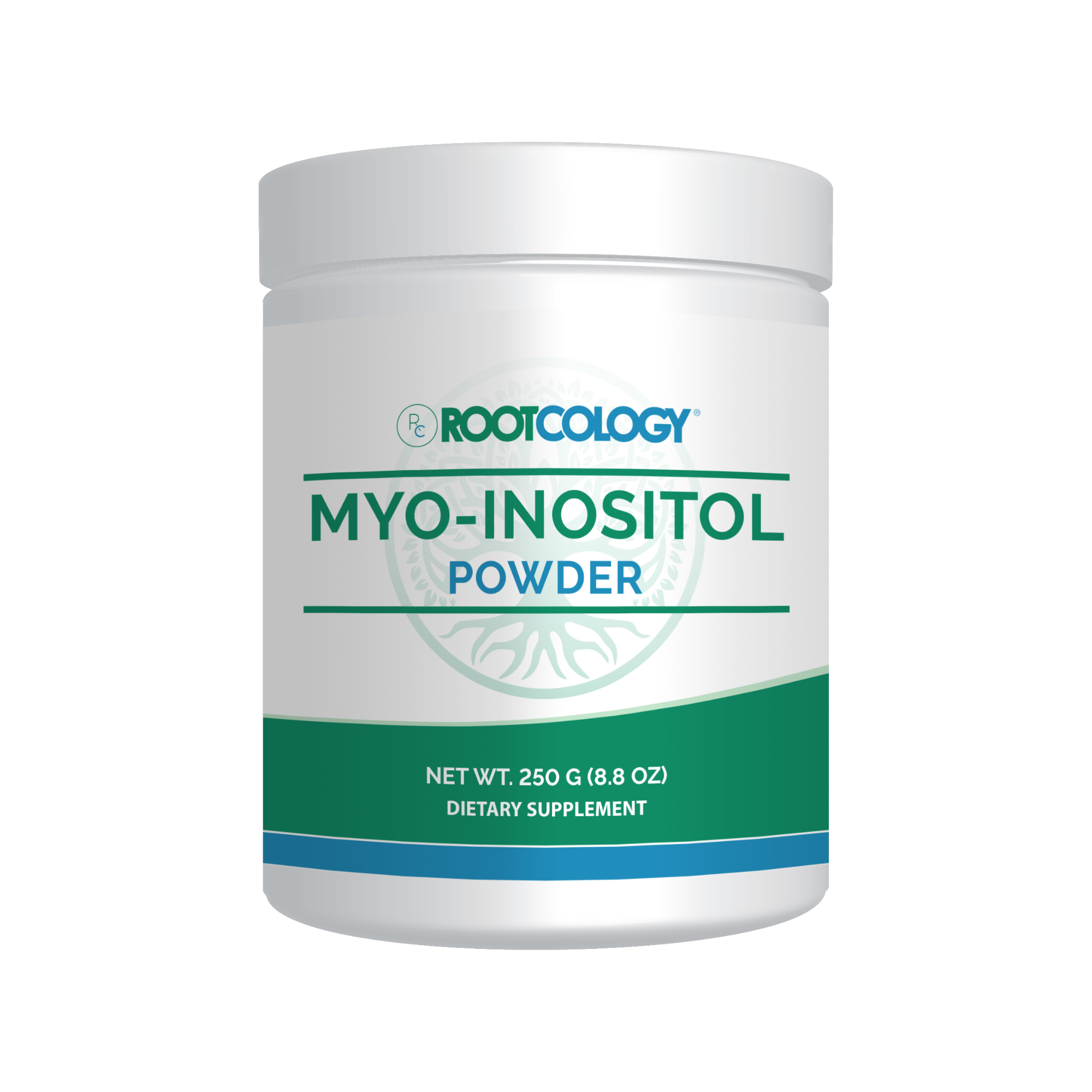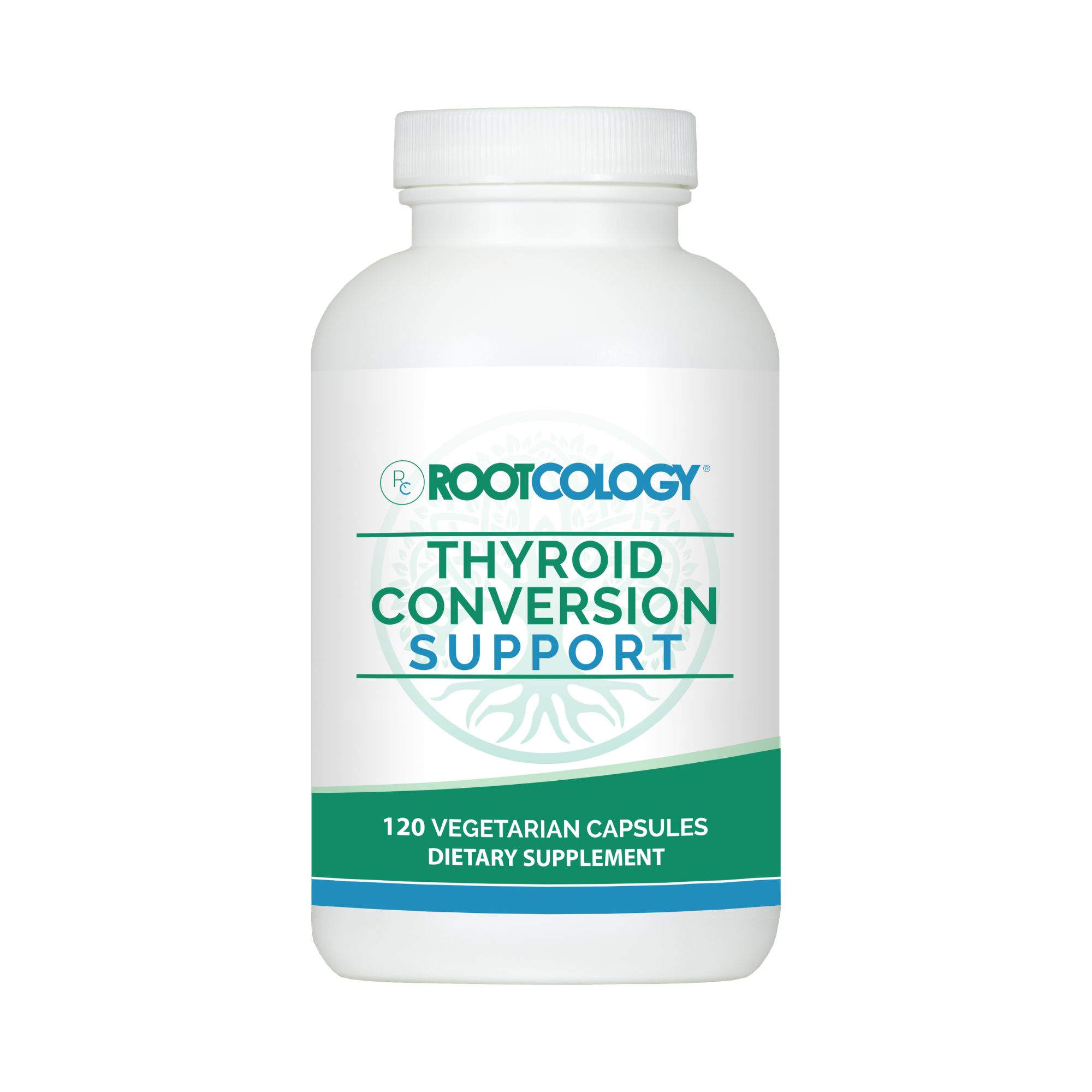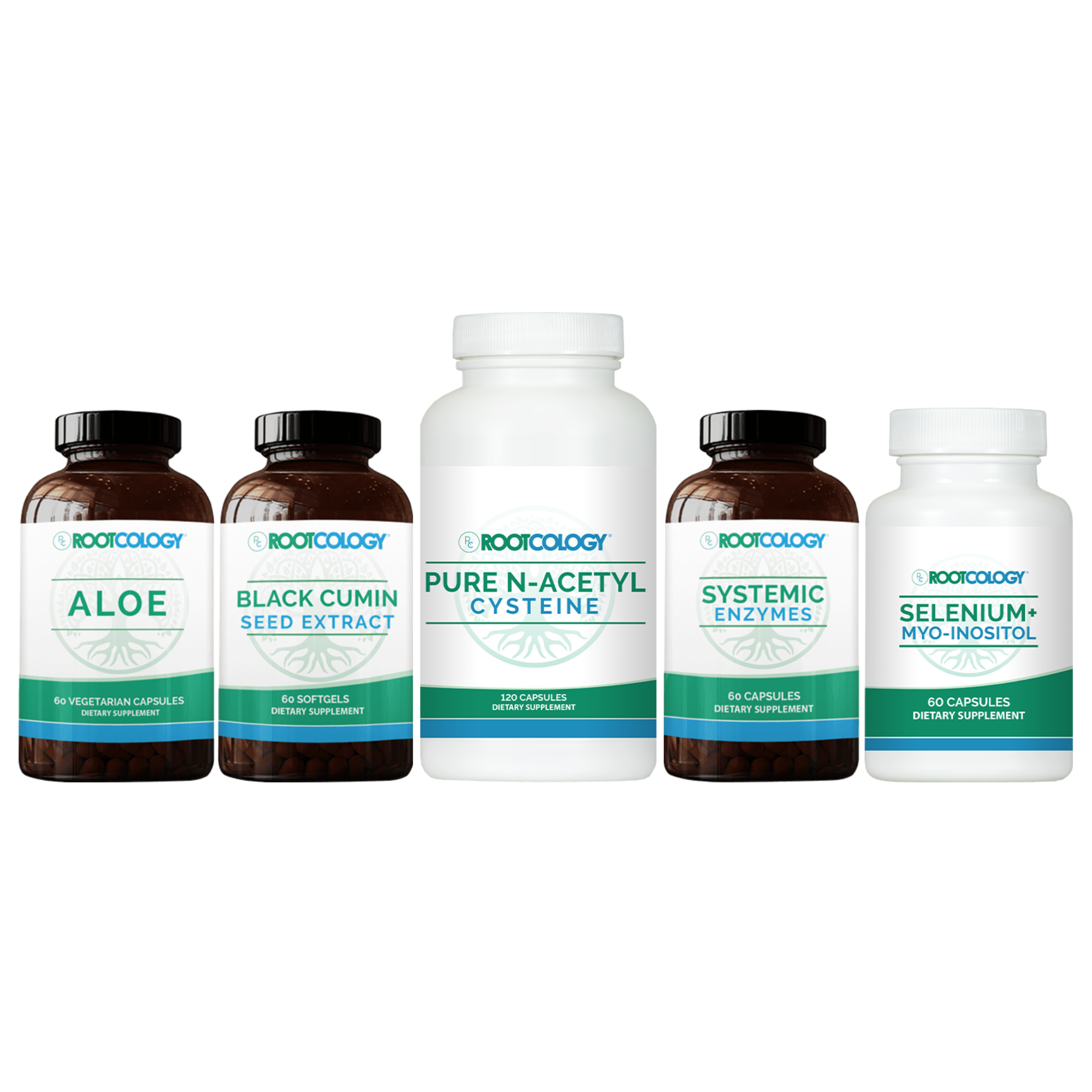What is Selenium + Myo-Inositol?
Selenium + Myo-Inositol contains 83 mcg of selenium, a critical nutrient in regulating thyroid function, as well as 600 mg myo-inositol, a nutrient that serves key functions relating to hormone signal transduction in the endocrine system. Clinical research indicates that this nutrient combination can help support optimal thyroid function.*(2)
What are the benefits of Selenium + Myo-Inositol?
Selenium + Myo-Inositol combines selenomethionine and myo-inositol in a range that has been studied for synergistic benefits. Selenium + Myo-Inositol may support healthy thyroid function, healthy hormone balance, a balanced metabolism, and optimal immune function.*
What is the recommended dose?
The recommended dose is one capsule per day.
When should I take it?
This supplement should be taken with a meal.
Can it be taken with thyroid medications?
Selenium + Myo-Inositol should be taken at least 30 to 60 minutes away from thyroid medications. Testing your thyroid hormone levels every 30-90 days to see if a medication adjustment is needed, is recommended.
How long can I take Selenium + Myo-Inositol for?
Three months to one year as part of TPO & TG Support.* Can be taken long-term for maintenance, if helpful.
Is it normal for Selenium + Myo-Inositol to have a strong or unpleasant smell?
This is totally normal! Our formula includes selenomethionine, which is a naturally sulfur-based ingredient. Sulfur has a distinctive, sometimes sharp scent. You might notice the strength of the smell varies slightly from batch to batch, but rest assured, this is expected and does not affect the quality or effectiveness of the supplement.
Most selenium supplements—unless they’re tablet forms—have a similar aroma. The slight odor is common with selenomethionine. It doesn’t mean there’s anything wrong with the supplement, it’s simply the nature of the ingredient.
Are the ingredients Autoimmune Paleo (AIP) compliant?
Yes, this formula is compliant with an Autoimmune Paleo diet. It is free of gluten, dairy, soy, GMOs, and shellfish, and has been tested for purity.
Not to be used by those with a corn allergy.
Consult with a physician before use if pregnant or breastfeeding.
DO NOT TAKE if taking the following medications: antidiabetic drugs, anticoagulant/antiplatelet drugs, barbiturates, blood thinners, and/or immunosuppressants.
Selenium may also interact with other supplements and medications, such as cholesterol-lowering statin drugs, antacids, chemotherapy drugs, corticosteroids, niacin, and birth control pills.
Myo-inositol should not be taken by those who have kidney disease or who may already be taking supplements, such as cleavers (a diuretic herb), that can affect the kidneys or the lymphatic system, as myo-inositol may not be properly cleared when the kidneys are overworked.
People with diabetes taking any form of myo-inositol should watch for signs of low blood sugar (hypoglycemia), as myo-inositol may lower blood sugar and hemoglobin A1c levels. Selenium intake may also cause side effects in those with diabetes.
Rarely, myo-inositol has been associated with nausea, headaches, dizziness, fatigue or sleeplessness. Some people have reported increased bleeding with the use of myo-inositol, so it is not recommended with a history of heavy bleeding, or in those taking blood thinners. If you experience any of these effects, discontinue taking it.
Those with a CBS gene mutation have difficulty breaking down selenium. If you know you have a CBS gene mutation, then regularly monitoring your selenium levels is necessary.
Selenium supplements are also associated with a risk of non-melanoma skin cancer (squamous cell carcinoma), so people at high risk of skin cancer should not take these supplements. In addition, there is possibly a link between selenium and prostate cancer, although data on this topic is conflicting.
Please note: Selenium + Myo-Inositol uses a non-GMO corn-derived ingredient and may contain a protein component that could cause an allergic response in those with corn allergies.
- Natural Medicines Therapeutic Research Collaboration. https://naturalmedicines.therapeuticresearch.com/. Accessed March 1, 2022.
- Nordio M, Basciani S. Treatment with Myo-Inositol and Selenium Ensures Euthyroidism in Patients with Autoimmune Thyroiditis. International Journal of Endocrinology. 2017;2017:2549491. doi:10.1155/2017/2549491.
You May Also Like
Questions about Rootcology Products? Email info@rootcology.com and we will get back to you within 24 business hours.




